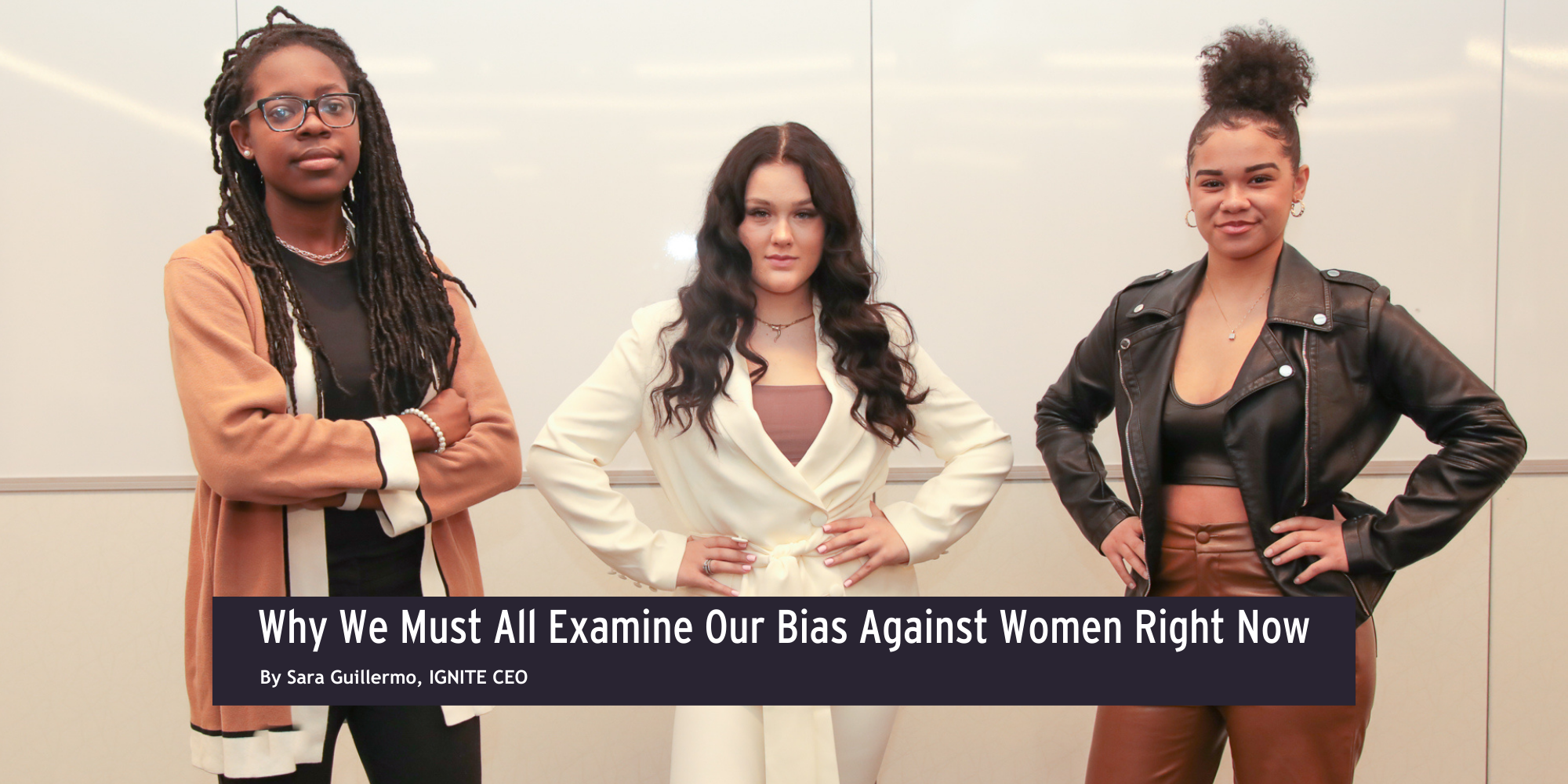Why We Must All Examine Our Bias Against Women Right Now

A new United Nations report has found no improvement in gender biases in the past decade. Young women have no choice, it seems, but to fight through bias to succeed. It's a powerful insight when it comes to running for political office. There is no point in sugarcoating it for them. Not if we're going to reshape the future in a more positive direction. But there is more that we can all do to help, too. The solution isn't only in women's hands but everyone's.
I run a young women's political empowerment organization. We talk to young women about the importance of being at the decision-making table. We build their confidence to run for office and win. But the U.N. Development Program’s Gender Social Norms Index is clear. It found nine out of ten people still hold biases against women. Never mind the #MeToo movement. A quarter of people globally believe it is “justifiable for a man to beat his wife”. Half of respondents believe men make better political leaders than women. The report says the share of women as heads of state has remained at around 10 percent since 1995. In the U.S. Congress, it'll be 118 years until we reach gender parity at the current rate.
It is all sad. And it follows a recent research study showing media bias against female politicians. Media reinforces stereotypes that women are not as qualified as men. The study found that implicit gender frames are more prevalent in news coverage. So, journalists call female candidates “emotional” or “compassionate" more often. Meanwhile, they call male candidates “strong” and “confident" instead. It is a bizarre set of characterizations when you consider political headlines. Women are not a monolith. But male political leaders are often "emotional" themselves. The research focused on The New York Times, The Washington Post, and The Wall Street Journal. The papers of record. It looked at 9,000 articles from 2018 to 2020. The findings are irrefutable. These are our major newspapers and we expect them to uphold the highest standards. They can do a lot better.
The truth is, I'm not in the mood for this nonsense. My husband and I had a baby three months ago and I'm sleep-deprived. The pair of us have been doing our best to handle the childcare on an equal footing. But he got a new job, so he couldn't take parental leave. Meanwhile, I was able to take advantage of a generous provision — 12 weeks — in California. It only took more than 100 phone calls to the government department that writes the checks to get them to send me mine. And I’ve even heard that I could take a few more night shifts. Since I'm on parental leave. Such remarks do not go down well. I also find that my husband gets medals for pitching in on work that's expected of me on a routine basis. My story is hardly unique but there is nothing like having a child in America in 2023 to scare you stiff on this score.
Young women do inspire me with their courage in the face of gender bias. They are fighting important battles that their male compatriots are yet to get to. I'm thinking of the women on college campuses battling for better access to rape kits. Or women in the South fighting efforts to suppress college-age votes. Still, despite their credentials, women who lead are often asked to prove themselves. Judge Ketanji Brown Jackson was no anomaly when she ascended to the Supreme Court. And young women pointed out that the absence of a Black woman on the highest court fuels bias. So she put her head down and got through the confirmation proceedings with grace.
Still, we need to talk about and challenge gender bias. It’s not all on women to fix. Women’s path to success in a male-dominated power structure is fraught with risk. Not all that risk is within their power to resolve. Congresswomen continue to experience sexual harassment on the steps of the capitol. A jury found a former president liable for sexual abuse this year. The most important thing we can all do today is take an implicit bias test and talk about the results. That means everyone. It means you, reading this. Because yes, it is shocking that 90% of people feel bias against women. But that means the odds are high that you hold onto it, too. And the fastest route to challenging bias is to be conscious of it in yourself.
The numbers show we need to fight harder and go further, faster. Men still have a firm grip on most positions of power. Women are still underrepresented in politics. If we are not prepared to examine our own role in holding them back, we are part of the problem.

